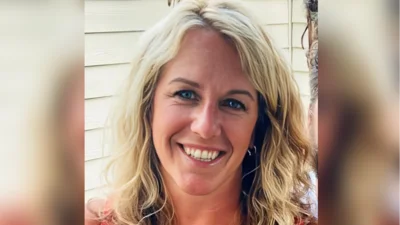At a joint House and Senate committee hearing on the Economic Development and the Cannabis Regulation and Taxation Act convened since Illinois is considering decriminalizing the drug, Rep. Mike Fortner (R-West Chicago) wanted to know what regions in Colorado have opted out of the recreational sale of cannabis sales since that state legalized the drug.
“One area that I would like to get more information from you that I have not heard a lot of today is on local control and how different jurisdictions, counties and cities, and even business properties are able to make their own choices in Colorado and what your experiences are with that,” Fortner said at Tuesday’s hearing in Chicago.
If passed, SB316 and HB2352, respectively sponsored by Sen. Heather Steans (D-Chicago) and Rep. Kelly Cassidy (D-Chicago), would legalize marijuana in Illinois, making it the ninth state, along with Washington, D.C., to decriminalize the drug.

Rep. Mike Fortner
Responding to Fortner's queries at the hearing, Adam Orens, economist and co-founder of the Marijuana Policy Group, and Colorado Rep. Dan Pabon (D-Denver) told Fortner that marijuana is mostly wanted in many areas.
“If you count by number of counties, I think most have opted out actually, but if you count by population, most of the population centers have opted in, including the major tourism regions,” Orens said, noting local control trumps state control of the drug sales. “This is an area where we have made a local pre-emption of rules, so you can make a more stringent local rule on pretty much anything related to cannabis.”
Pabon added that when the law passed in 2014, Colorado lawmakers gave jurisdictions a choice.
“At the forefront, many jurisdictions opted out because they weren’t sure if they wanted to be in the business of licensing a cannabis industry, so they opted out,” Pabon said. “But as time has gone on, more jurisdictions are interested in doing so (opting in), since we allow a 15 percent share back of revenue that is generated from our special sales tax so that can be enticing to a ... town that is interested in regulated cannabis.”
Fortner delved deeper into his question, wanting to know that, following legalization, who has gone from pro-pot to anti-cannabis regulations in their regions.
“Do you have a sense at this point five years down the line what fraction are taking advantage of opting out as opposed to opting in,” Fortner asked.
Pabon said the state is seeing an upswing of interest rather than a decline, detailing one area that has remained stable since cannbis sales were made recreationally legal.
“One thing we did not change at all was the landlord-tenant relationship and business relationship on what is allowed or not allowed to be grown in their facility,” Pabon said. “That is still private contractual and enforceable law.”
Fortner thanked Orens and Pabon for flying in from Colorado to appear at the joint hearing.
“Thank you both for sharing a lot of information from the state that has probably been getting more information thrown at them since the passage of the referendum five years ago,” Fortner said.
.jpg)





 Alerts Sign-up
Alerts Sign-up